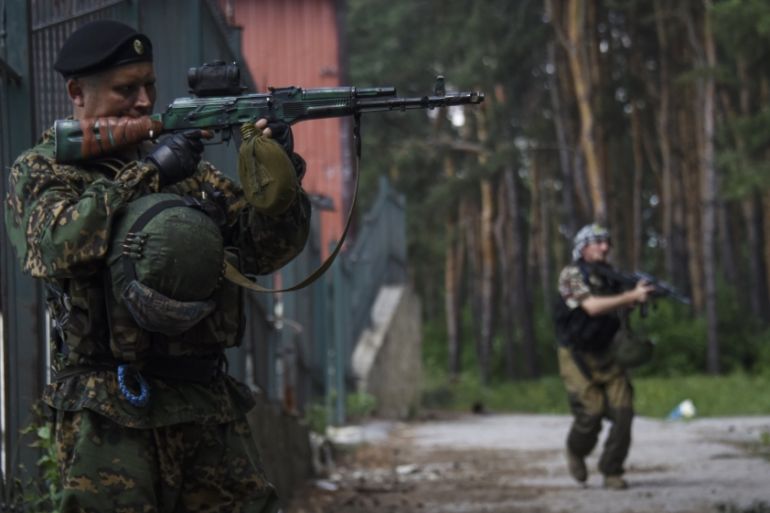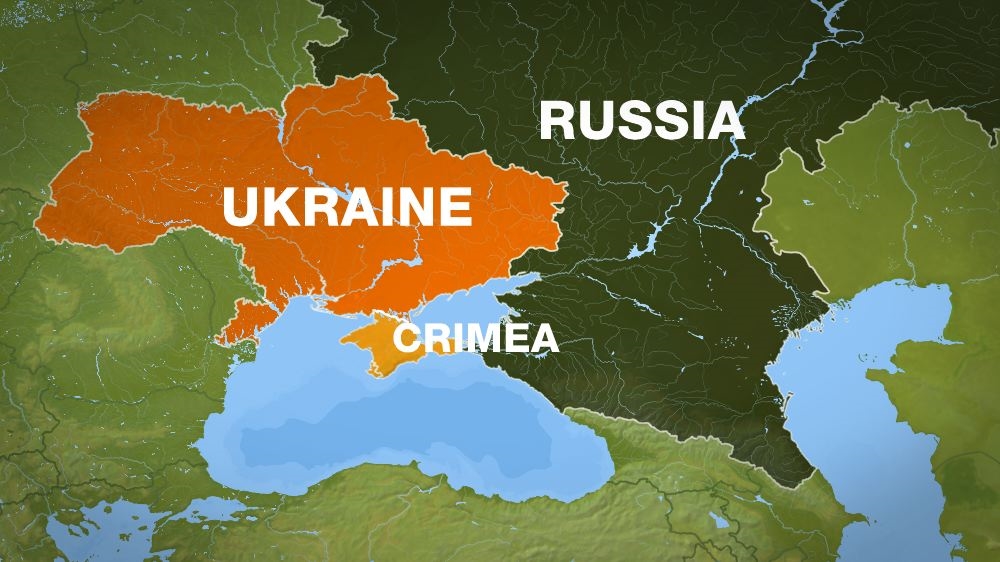EU extends sanctions against Russia over Ukraine
Russia disappointed with “opinion of Russophobic lobby”, announced a day before meeting of foreign ministers in Paris.

The foreign ministers of the European Union have extended economic sanctions against Russia to the end of January 2016 to ensure it fully implements Ukraine peace accords, according to officials.
The move came on Monday, a day before the foreign ministers of France, Germany, Ukraine and Russia were due to meet in Paris on Tuesday to review the situation in Ukraine.
Keep reading
list of 4 itemsGeorgia’s ‘foreign agents’ bill: What’s the controversy about? What’s next?
What’s at stake in next month’s European elections?
EU to drop rule-of-law dispute with Poland
|
|
Jen Stoltenberg, the NATO chief, welcomed the EU decision on Monday, saying the sanctions were “a strong signal and clear message that it has consequences when a country behaves like Russia has in Ukraine”.
For its part, Russia expressed disappointment, blaming partisan EU groups for the decision.
“We are deeply disappointed that the opinion of the Russophobic lobby, which pushed through the decision to prolong illegal restrictions, once again dominated in the EU,” the Russian foreign ministry said in a statement.
RELATED: Foreign students face uncertain future in east Ukraine
The decision was “guaranteed to cause hundreds of thousands of Europeans to lose their jobs”, it said, focusing on a sore point in the bloc.
It also described as “cynical” the fact that the decision was taken on June 22 – the same day that Nazi Germany launched its devastating invasion of the Soviet Union in 1941.
The 28-nation bloc hit Russia’s banking, oil and defence sectors with punitive measures after Malaysia Airlines flight MH17 was shot down in July last year over territory held by pro-Russian fighters.
EU has also warned, alongside the US, that more could follow unless Russia withdraws support for the fighters and use its influence with them to implement a ceasefire accord signed in the Belarus capital, Minsk, in February.
In March, EU leaders agreed in principle to roll the sanctions over by linking them directly to the Minsk accord, which runs to December this year.
Crimea annexation
The ceasefire has largely held but Ukraine and the pro-Russian fighters swap charges daily over breaches, and observers reported a sharp pick-up in fighting earlier this month.
According to a report in KyivPost, an online news website, nearly two weeks after a major battle in Maryinka that prompted fears of a full-blown offensive, the small village continues to come under almost daily shelling and residents say they are “just waiting to die”.
The conflict in eastern Ukraine has claimed more than 6,500 lives and destroyed much of the region.
Separately, the EU announced on Friday that it had extended until June 2016 sanctions imposed to punish Russia’s illegal annexation of Crimea.
RELATED: Russia: From oil curse to sanctions
The European Council, comprised of the bloc’s political leaders, said it continued to “condemn the illegal annexation of Crimea and Sevastopol by the Russian Federation and remains committed to fully implement its non-recognition policy”.
Russia annexed Crimea in March 2014 following the overthrow of pro-Russian president Viktor Yanukovich in Kiev, saying the peninsula had voted overwhelming in favour of returning to its Russian homeland.
The Crimea sanctions include bans on cruise ships using ports there and restrictions on exports of telecommunications and transport equipment, in addition to visa bans and asset freezes against figures said to have helped the Russian annexation.
